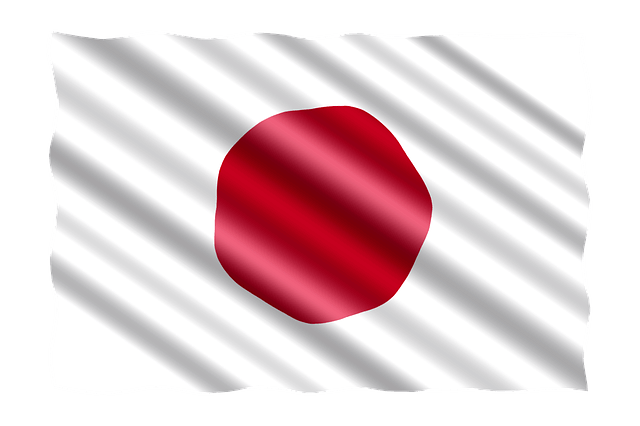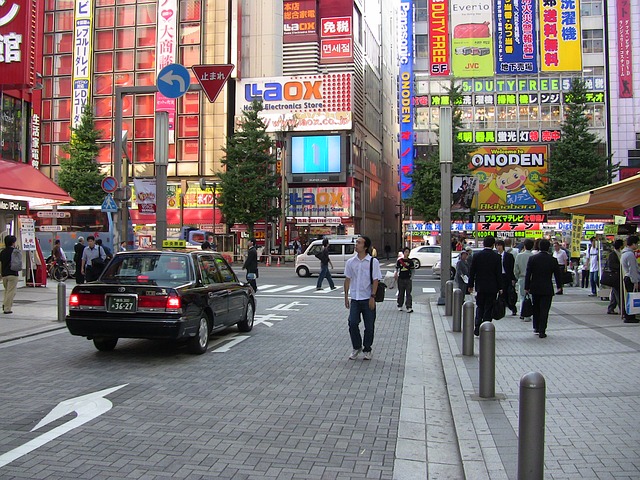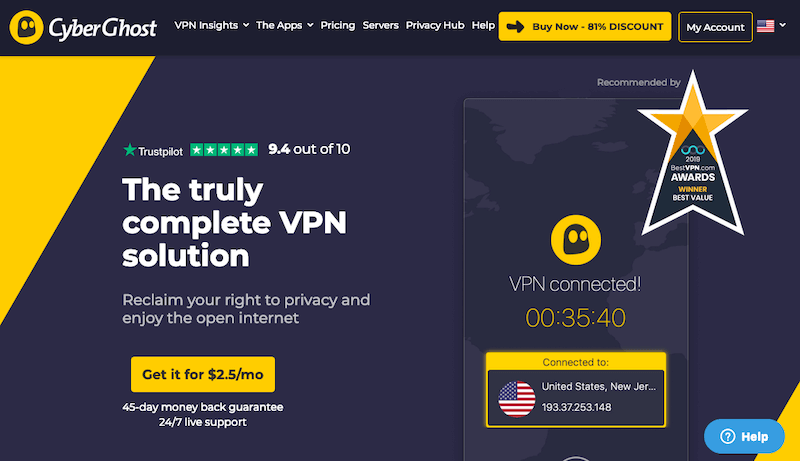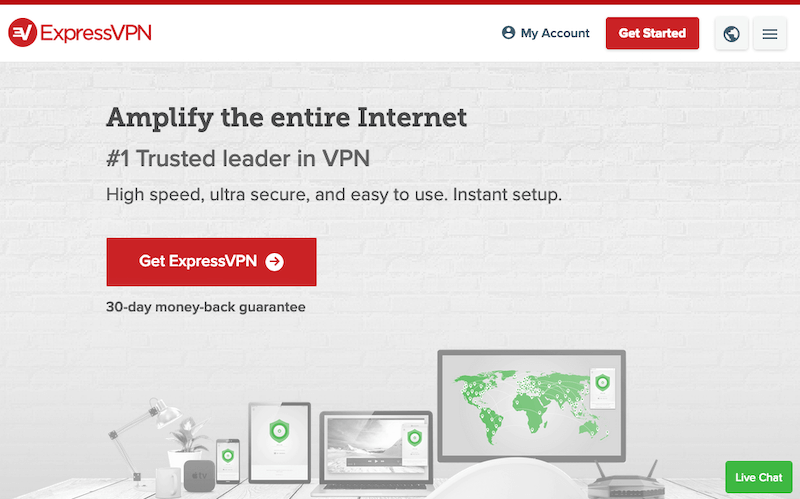Japan is not only the land of the rising sun, but the country is also one of the world leaders when it comes to technology.
The country is known for its traditional tea ceremonies and the mesmerizing bonsai trees on one hand, and it is known for robots and is home to some of the biggest tech companies of the world on the other.
It is difficult to imagine the modern world without the internet. Japan has a healthy population of people using the internet in the country.

As it is in the case of any other country, the netizens in Japan also need to stay safe and protected on the internet.
The government of Japan does not impose any unfair internet and censorship laws on the population. However, the technological advancement of the country may sometimes reflect in some of the unwanted areas as well.
Cyber attacks have been on the rise in the country. The government of the nation blamed the Chinese hackers for half of these cyber attacks and has been trying to come up with measures to counter these.
But it is also the responsibility of an individual in the cyberspace of Japan to personally undertake some steps to avoid any mishap.
VPNs are the need of the hour for anyone using the internet these days. These services help the user stay anonymous on the internet and stay safe from any online attack.
One needs to account for a lot of factors when choosing a virtual private network service for Japan. We have made this job a bit easier though.
Here are a few virtual private network providers most suitable for use in Japan.
We have also discussed how you can choose the best VPN for Japan, in the later sections of the review.
Recommendations
As we have discussed earlier, there is no country specific laws that bans or censors specific internet traffic, however if you’re looking for some ideal service providers for Japan, you can consider following ones.
1. CyberGhost
More Info: Read Review | Visit Website
CyberGhost is a Romanian VPN service. The laws in the country allow them to take care of the privacy of their customers without any interference from the government whatsoever.
However, it is the server network of CyberGhost which makes it appealing for the users in Japan. This VPN service has more than 3500 servers in 60 different countries of the world.
CyberGhost has a lot of servers in Japan and also in neighboring countries such as South Korea and Russia. The user in Japan will get benefitted a lot from these servers in the proximal countries.
The speed on the service should also not be much of a concern for the users. The service is known for allowing its user to get the most of their high-speed internet connection.
2. IPVanish
More Info: Read Review | Visit Website
IPVanish provides a sound security layer for the people browsing the internet. They have all the usual security features such as military-grade encryption and secure protocol.
They have also got some unique and advanced features such as the option to block the LAN traffic. Features such as these aid in keeping the user safe on the internet.
IPVanish has a broad server network which covers most parts of the world. They have got servers in Japan as well which will allow you to browse the internet on the VPN without many latency issues.
Use of private DNS servers and the availability of SOCKS5 web proxy on the service are some of the features which allow the VPN to bypass the geo-restrictions easily.
3. HideMyAss!
More Info: Read Review | Visit Website
The fact that HideMyAss! has got servers in more than 190 countries of the world, tells a lot about this service. It has not only got servers in Japan but has also got servers in most of the neighboring countries of the world.
These many servers will automatically take care of most of the geo-restrictions. HideMyAss! is one of the few VPN services which deals with Netflix’s regional restrictions with ease.
They also take care of the user’s security on the internet and provide the best encryption possible. The robust security measures on the service don’t interfere much with speed on the platform.
They avail dedicated servers for streaming and P2P file sharing which makes it easier for the user to navigate through the vast server list on the client.
4. Private Internet Access
More Info: Read Review | Visit Website
Private Internet Access has got servers in 32 countries of the world, and Japan is one of them. This VPN service is well known for its high-speed performance.
This virtual private network provider also blocks the malware and adware which makes it a pleasant experience for the user to browse the internet.
They are based in the USA which may be a matter of concern for some users. However, there have not been any significant reports of this service not taking care of the privacy of its customers.
Private Internet Access allows the user to use the service through a router. The use of MTU technology on the client makes it compatible with a lot of the Wi-Fi routers available out there.
5. ExpressVPN
More Info: Read Review | Visit Website
ExpressVPN has more than 3000 servers in more than 90 countries of the world. Japan has also got its fair share of ExpressVPN servers which support all the protocols available on the client.
The broad platform support on the service allows the user to get VPN cover for most of his devices which connect to the internet. They also allow you to connect the router to the VPN which will give you even more flexibility when connecting the devices to the network.
ExpressVPN is among the faster VPN services, and it bypasses most of the geo restrictions with ease. These features pave the way for streaming the restricted content with ease and without any loss in the quality of the content.
The service has a strict no-logs policy which helps keep the user anonymous on the internet. They also provide the best encryption possible which is virtually impossible to decrypt without the key.
State of the internet in Japan
Japan has a majority of its population connected to the internet. It is estimated that more than 90% of the country’s population has internet access.
The government laws respect the privacy of the netizens, and there are no mandatory data retention laws in the country. The government does not interfere much into the online affairs of the citizens.
The internet in Japan is mostly self-regulated by the telecommunication services and the other stakeholders in the field.

These parties themselves imply various restrictions which prevent the misuse of the internet for unlawful and unethical services.
They undertake appropriate measures to stop the use of the internet to circulate content related to child pornography, terrorist propaganda, and other such harmful material and media.
The government has also made some laws to strengthen the security of the defense systems of the country. The conspiracy law in the country has made it illegal and criminal activity to share or leak any data which can be classified as a national secret.
Even though the law was created with the right intention to protect the national interests and security, there are some clauses which make it susceptible to misuse by government bodies.
The law states that the person will be deemed criminal irrespective of the intention behind sharing the content. The content itself will also not matter very much, and the person will have to face the penalties anyway.
The other feature of this law which makes it dangerous is that it very loosely defines as to what can be termed as a national secret. This brings a lot within the umbrella of the law, and sharing any of this stuff will make you a criminal.
The law is also being viewed one against the journalists and reporters. However, there have been no significant occurrences which may point towards the misuse of this law.
Piracy of copyrighted content is strictly prohibited in the nation. Pornography is also very heavily censored in Japan. It is considered against the traditional values of the country and the region.
There are a few restrictions on streaming services as well. But that has almost become a norm for every country on the planet except of course the United States of America.
The content library of streaming services generally has the most content for users from the USA.
The overall state of the internet and the laws related to the internet is much brighter than what it is for most of the countries of the world.
However, the present scenario doesn’t guarantee a safe internet in the future as well. The next section is all about the reasons which make a VPN necessary for an average internet dweller in Japan.
The need for VPN in Japan
We mentioned how Japan is very advanced in terms of technology. A lot of the modern-day innovations originated from this country.
A lot of the regular stuff ranging from coffee machines to garage doors are now connected to the internet. All such things which connect to the internet are loosely referred to as IoT (Internet of Things.)
People of Japan have now included a lot of IoT devices in their lifestyles. These devices make a life lot easier for the individual by taking things off their plate.
People have also gotten comfortable with the idea of technology helping them to do their daily chores. However, this reliance and dependence on the IoT devices are what pose threats to the privacy of the individuals.
A lot of these devices don’t follow very safe architecture when it comes to security. It is relatively easy for hackers and cybercriminals to take control of them.
You may wonder how a compromised toaster can affect your privacy. Well, it may not, but a compromised security camera can definitely cause some serious troubles.
Cybercriminals are increasingly targeting these IoT devices as they serve as easy prey. There are ample IoT devices, and therefore, ample opportunities for cybercriminals in Japan.
It is a contextual matter if a VPN service will be able to save all your IoT devices from a cyber attack, but it will prevent a lot of them from getting compromised.
A good VPN service makes it almost impossible for an anti-social element to identify you on the internet. Thus, it will make it even tougher for one to compromise your privacy on the internet.
Even the Japanese government realizes the threat on the IoT devices, and hence, they decided to themselves try to hack the IoT devices in the country.
The decision has been made to strengthen the security measures ahead of the 2020 Tokyo Olympics, and also to educate the citizens about the importance of security on these devices.
The process will be long, and it can go on for up to 5 years. They will try to hack into hundreds of millions of devices in the country. If a device gets hacked, the owner will be informed about it and will be asked to improve the security measures on the device.
The 2020 Tokyo Olympics is one of the major reasons which may prompt one to get a suitable VPN service for Japan.
The event will see a surge of foreign nationals into the country, and it is always a good idea to stay under the protection of VPN in a foreign country. It will help the user stay safe when using public Wi-Fi networks and other unsafe internet access ports.
The VPN will also help the user to bypass all the geo restrictions imposed by the streaming services. This way you will be able to continue watching your favorite web series in Japan even if it is restricted in the country.
Japan experiences the inflow of a lot of tourists even in the usual years, and all these tourists can benefit from a VPN on their devices to connect it to the internet.
Even if you don’t use an IoT device or if you are not a tourist in Japan, a VPN will still be useful for you. It will keep you safe from the cyber attacks which are continuously rising in Japan. A VPN will also keep your device and information safe when connecting to an unsafe network.
How to choose a VPN for Japan
Let us now discuss all the parameters to consider when finding the best VPN service for Japan.
Let us start with the servers. Japan is made up of a lot of Islands. The country does not share its land border with any nation.
The relative isolation of Japan from the rest of the world makes it essential for you to consider only those services which have a server in Japan.
Servers play an important role when it comes to the quality of service you will get when connected to the VPN. A server in proximity will make sure that you don’t face a lot of latency issues while connected to the network.
A large number of servers in a location or high-bandwidth capacity servers in an area will help keep any traffic bottleneck issues away and let you use high-speed internet when connected to the VPN.
Make sure that the service has an ample number of servers in Asia and Oceania. The servers in these regions may also turn out to be useful for users in Japan.
The next consideration should be the privacy on the service. One identifying factor in this area can be the applicable jurisdiction over the provider.
You need to make sure that VPN service is not based in one of the 14-Eyes countries. These countries have robust surveillance mechanisms installed, and a lot of them impose mandatory data retention laws over the businesses in the country.
The VPN service should have a strict no-logs policy. You don’t want ISPs and other groups to know about your online activities. But letting the VPN service provider have this data about you will only do more harm than good to you.
If the VPN service does not have your online data, then there will be no fear of the data getting leaked as well.
The next consideration should be the speed on the service. You may be using the VPN to bypass some of the geo-restrictions and access content on the streaming services.
It is, therefore, necessary that the VPN service can give you most of your high-speed internet connection.
Since IoT is a big factor for Japan, you will have to look for a VPN service which supports a lot of devices and platforms. It will be even better if it works well with Internet routers.
Some VPNs will be compatible with your smart TVs and gaming consoles. Using a VPN on such devices will help you keep them safe.
Speaking of safety, you will also need to keep an eye on the security measures used on the VPN. The two major contributing factors in this section will be the protocol and the encryption being used by the service.
AES 256-bit encryption is the best encryption that you can get. However, it does affect the performance and speed as this encryption requires considerable computing resources. The next best thing is the AES 128-bit encryption. It is also almost impenetrable and facilitates better performance when compared with AES 256-bit.
You should look for a VPN service which provides both the encryptions as a choice so that you can easily switch between the protocols as needed.





